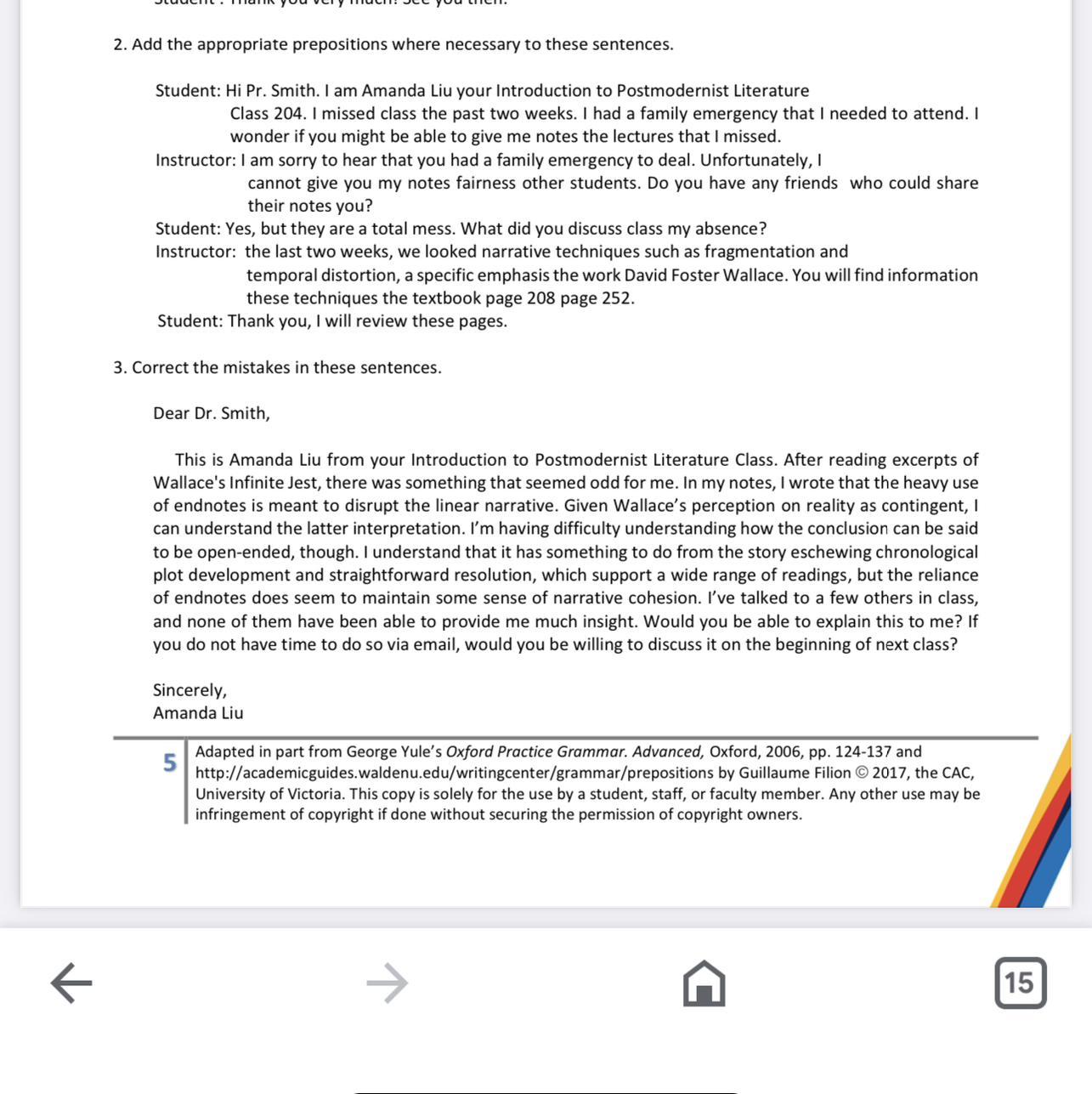Помогите пожалуйста сделать 2, и 3 задание.

Ответы
2. Student: Hi Pr. Smith. I am Amanda Liu, in your Introduction to Postmodernist Literature Class 204. I missed class for the past two weeks due to a family emergency that I needed to attend. I wonder if you might be able to give me notes on the lectures that I missed.
Instructor: I am sorry to hear that you had a family emergency to deal with. Unfortunately, I cannot give you my notes in fairness to other students. Do you have any friends who could share their notes with you?
Student: Yes, but they are a total mess. What did you discuss in class during my absence?
Instructor: In the last two weeks, we looked at narrative techniques such as fragmentation and temporal distortion, with a specific emphasis on the work of David Foster Wallace. You will find information on these techniques in the textbook on page 208 and page 252.
Student: Thank you, I will review these pages.
Dear Dr. Smith,
This is Amanda Liu from your Introduction to Postmodernist Literature Class. After reading excerpts from Wallace's Infinite Jest, there was something that seemed odd to me. In my notes, I wrote that the heavy use of endnotes is meant to disrupt the linear narrative. Given Wallace's perception of reality as contingent, I can understand the latter interpretation. I'm having difficulty understanding how the conclusion can be said to be open-ended, though. I understand that it has something to do with the story eschewing chronological plot development and straightforward resolution, which supports a wide range of readings, but the reliance on endnotes does seem to maintain some sense of narrative cohesion. I've talked to a few others in class, and none of them have been able to provide me much insight. Would you be able to explain this to me? If you do not have time to do so via email, would you be willing to discuss it at the beginning of the next class?
Sincerely,
Amanda Liu
Note: The changes include correcting the preposition "for" to "to" in the first sentence, changing "from" to "in" in the same sentence, changing "the latter interpretation" to "this interpretation" to clarify the reference, changing "reliance of endnotes" to "reliance on endnotes," and adding "at" before "the beginning of the next class."